Thresholds and Webs as Maps
When you invite death into conversation, when you invite others into your grief
Welcome to Wandering Grace. I will be sharing essays exploring the themes of place and (be)longing every other Thursday, and bonus snapshots from the road on alternating Sundays. Read more about the project here. Last Sunday: A living glossary. Soundtrack for today’s essay: “I Belong” by MILCK.
As a writer, I have been wondering how much context to collapse into these essays, and whether to incorporate present-day knowings+happenings into the re-collection, re-rememberings, and memoir-ing of this past spring’s Healing Pilgrimage. On the docket for this week’s essay was to write about a Bay Area Death Café hosted by some friends in April wherein I shared about my mom’s upcoming anniversary. Also this week in life time: my mom’s anniversary, and I’m staying with those same friends in SF. So I can’t not write about both: now and then, past and present. This project is showing me what I probably already knew: that grief and time are non-linear, and the idea that we can keep any of this separate is an illusion.
In March of 2023, I realize that it will be the 20th anniversary of my mom’s passing come September. This feels like a threshold anniversary.
Come September, I will have lived more years alive without her than with her in my life.
***
“Without her” doesn’t feel accurate because she’s still a part of my life. I still have a relationship with her. She’s still here with us.
“Without her” feels accurate because I can’t call her up, I can’t be annoyed at her for her expectations of me calling her up, I can’t try and help her cook only to be relegated to snapping the ends off the green beans while she does the rest. I can’t be concerned about the fact that she’s still working or be surprised that she wants to go on retreat in Taiwan or be frustrated that she refuses to go back to Vietnam with me.
What I really really want to do is ask her to tell me stories about who she is, who she was, what her family was like, what stories about China she heard growing up, what her life was like back in Vietnam, when she moved to America and why Houston and how and what was the war like was it abstract or was it terrifying, and when did she meet dad and what the heck were they thinking when they got married, and did she ever love him or think she loved him, no not love what does love even mean but could she see a life with him and why and how, and what were her expectations, and how did that shift over time and how did they shatter, and is she still angry did the temple help her become less angry, did time, what does she regret, what did she never even give herself permission to regret because confucianism teaches you to accept and accept and accept and accept.
Maybe she wouldn’t ever be able to tell me the whole story but I could at least get some more puzzle pieces, some of the slippery emotional pieces that might help the cognitive dissonance of my childhood make sense, amidst the harmonious chords of stability built on what I deem as sacrifice but which was probably just the world rebuilding itself again and again through immigrant bodies, what happens when you day after day put one foot in front of another after another after another until the years slip away and what’s left is gossamer string that glimmers as web.
***
The first weekend after I land in the Bay Area for my Healing Pilgrimage, some friends of mine are co-hosting a Death Café with some of their friends.
“Death Café is a respectful space where you can feel comfortable sharing your questions, curiosity, fears, beliefs, and stories about any/all aspects of death, grief, mourning, and bereavement. We have learned that there is often lots of laughter as well as a few tears.”
I walk over to the address on Valencia Street. The Death Café folks have set up a buffet of fruit and homemade cookies and a circle of chairs in the back room of a co-working space.
I’m more anxious about the ‘big circle’ aspect1 of this event than the topic itself. I exhale into spaces where the context of death and loss are foregrounded.2 I’m anticipatory because I will get to share about the threshold anniversary. I will get to talk about my mom.
In her book, so many ways to draw a ghost, Chelsea Granger says:
“I live in the United States where death & dying, grief & mourning aren’t talked about often and can be seen as morbid topics for everyday conversation…I was shocked by death. I felt unprepared. It felt like it came out of nowhere. I thought, ‘Why don’t more people talk about this?’ We hide it away.”3
***
While I’m sitting in the Death Café circle, a new question arises for me: how do I reconcile this idea of ancestors (people who are gone) with this idea of reincarnation (which I believe on some level) with this idea of having an altar to your dead whom you commune with in the afterlife (sending them food to eat, lighting incense to say hello, burning for them paper gold and paper cars and paper iphones as offerings)?
Does someone stop becoming a spirit I can commune with once they are born again into the earthly realm? Or is it a stepped process: first you are dead and accessible via altars, then you enter ancestral realm, then you pass on from there into reincarnation? My parents don’t feel like ancestors to me. They feel like dead parents.
Someone else shares a story of meeting the kindred spirit of a loved one in the living body of someone else, who was much too old to make sense within reincarnation timelines. But: that person’s spirit was that person’s spirit, and could be felt as such.
Because, of course, time is non-linear.
In circle that day, I realize that love is also non-linear.
***
After the Death Café, I am leaning against a wall under some track lighting in a basement apartment in the Mission and listening to a voice note from a friend. I had asked how he had decided to move back to his hometown. Closer to his parents was part of his answer, and he’s a little timid about sharing this because my parents are gone.
I stare into the emptiness of the apartment, my mouth slightly agape.
I have been asking myself all these questions about why I move around so much. It is only now that I’m making the connection: when my parents died and we sold my childhood home, I became uprooted in a way (upheaval, torn, adrift) that has made rooting again harder.
***
The September morning of the 20th anniversary of my mom’s passing, I wake up anxious, somber, and wishing I could light incense for my mom. I had carried incense with me throughout the April-June Healing Pilgrimage Migration Tour, but I didn’t pack any for this trip.
I try and do the logistical time calculations of whether I might be able to get to a temple in SF Chinatown before my work call, or instead of my work call, or before I have to leave for the airport…? I pause my swirly thought spiral to get up and brush my teeth.
Instead, I send some texts to a few heart friends who also know me in the context of my losses:
“If you are able, could you please light some (metaphorical or literal) incense for my mom’s anniversary? And send me a squeeze? Tenks 🙏”
In asking, I acknowledge the day and invite others into my grief.4
Later that morning, as I’m packing up my bags, I feel a somatic wave of anguish in my body, and I let it roll through. Later again, when I’m on the train listening to my resilience playlist, I feel some few tears want to come, so I let them flow.
It’s novel to be able to feel the feelings on the day of vs being blindsided by them as I have in years past (flailing and trudging my way through depression during back-to-school season before realizing sometime during the second half of September…oh, right, anniversary).
“These days it’s buried so deep it can feel good to actually really feel it.”
Throughout the day, I get my asked-for squeezes in the form of heart emojis and messages and photos.
By day’s end, I feel lighter, joyful even — bantering and buoyed by the connection and support that I am receiving from others.5
***
How I think of incense: As an energetic nudge across space-time that lets the person who has passed know that you’re thinking about them.
I am charmed thinking of my mom meeting some of the people in my web of now. That Mattie shared breakfast with a friend on their back porch, that she felt the hello from a mama of a three-year-old also experiencing tender feelings today, that her name is still remembered in our family friends circle — which extends on this day into Japan via an auntie on retreat.
I hope my mom is comforted (as I am) that her kids are still being held with care and tenderness, with strength and tenacity.
***
After all, my parents were a map for me in how to create and nurture this kind of web of support. They gave me the maps way before my 2010’s language of ‘community’ and ‘solidarity economy’ and ‘chosen family’ and ‘queering the heteronormative enclosure of love within marriage and nuclear family units’.6
It was my parents who taught me that when blood family becomes dispersed across the globe (from one lens: immigrant trauma, refugee tragedy, wreckage, upheaval, lives torn asunder)…that your sense of home can grow beyond what you’ve previously known, that your extended kinship with place can expand across continents, and that your labels of “family” “friend” “cousin” “relative” can conjoin and blur and blend into beauty. Because what’s important is to find people with whom you can life together, to raise the next generation up together.
I don’t know how intentional or conscious it all was in their minds or not. Life happened through them. They did what they had to do.
Regardless: their webs became the maps that I learned to navigate from.
Maybe the spider isn’t weaving the web. Maybe the web is weaving herself through the medium of the spider.7
***
During the summer of 2023, I realize that my math was wrong. Yes, this year will be the 20th year anniversary of my mom’s passing, but I already passed the threshold of “more years without her than with her.” That was last year: on the 19th anniversary because I was 19 when she died.
It’s sort of a relief: It’s already happened. I’m already the version of me who passed the momentous threshold. I’ve always already been the version of me who has been living with and without her for so long.
***
The day after Trump was elected in 2016, my newish friend Nicole stopped by for a backyard garden visit. She had recently interviewed me about my comics and grief for her podcast. I was (predictably) fretting about how to show up in activism, convinced that I wasn’t (ever) doing enough and that I should (always) be doing more.
She said she was making the rounds of “everyone who had maps” to make sure that we were okay, to remind us that we didn’t need to burn ourselves out on the frontlines when our wisdom is elsewhere and elsewhen.
On that day, I didn’t fully grock what she was trying to say to me…it will actually take me years of wrestling with what it means to be (or not be) an activist and in solidarity and an artist and not hiding and still responsible and and and…to become more okay being more myself.
Her words about “having a map” stuck with me, though, because they have intermittently popped into my head over the years as it becomes clearer and clearer over time just how much we need to feel and just how much we have to mourn8 and just how much we have to keep risking love always and anyways.
Grief is a map that I have.
I already call multiple places home.
I’ve always had so much family, and I already know how to create more.
I’ve already rooted across geographical space, weaving webs of community who can follow me across time.
We get to explore ‘big circle’ anxiety next essay at the Asian Diaspora Jam!
Shoutout to The Dinner Party, which was this kind of space and so much more for me during my time in the Bay Area.
“And it’s not just death that’s taboo but the dead themselves. It feels like once someone is dead it can be unsettling or impossible to rouse their presence with conversation. I want to talk about the dead. I want people to ask questions every once in a while. What was she like? What was your relationship like? Was she funny? Sometimes we are afraid (I am afraid too) to ask questions, to bring up the dead. We worry we will upset the griever, even if it is many years later. Maybe we should take more risks. Be brave! We should ask, knowing that we can trust each other to say “I don’t want to talk about it” if we aren’t in the mood. I’m a strong believer that it’s ok to cry. My eyes may well up with tears if you ask me about Suzann, but that’s not a problem! It’s okay to say her name even if I do get sad. These days it’s buried so deep it can feel good to actually really feel it.” ~Chelsea Granger
We are severed from grief by modernity, via stigma and taboo and let’s not talk about it. Loss and grief are downsized into steps and constrained to time limits and relegated to ‘appropriate’ expression to avoid making people (ourselves included) uncomfortable.
Asking for what we need: I have been apprenticing at the feet of those in my spiritual communities who are vulnerable on group chats: asking for prayers, inviting in support, and sharing of their lives. I have been learning from the example of my friend Asha who makes specific support requests for specific days in her life. It always feels nourishing to be able to fulfill them for her when I can.
These tangible reminders that I “don’t have to carry it alone.” (h/t eddie and kendra and milicent) Soundtrack: “Loosen” by Aly Halpert
Ooh, trailheads: How We Show Up by Mia Birdsong, Care Work by Leah Lakshmi Piepzna-Samarasinha, Undrowned by Alexis Pauline Gumbs (these are Bookshop affiliate links)
This idea, along with inevitable others which will infiltrate these essays as virus as glitch, come from Bayo Akomolafe and the teachers in the We Will Dance with Mountains course.
e.g. Maria Renée Johnson holds climate grief circles. e.g. CAN I GET A WITNESS is a transmedia project that traces two queer black latinx femmes (brontë velez & Stephanie Hewett) being danced by the ecology.




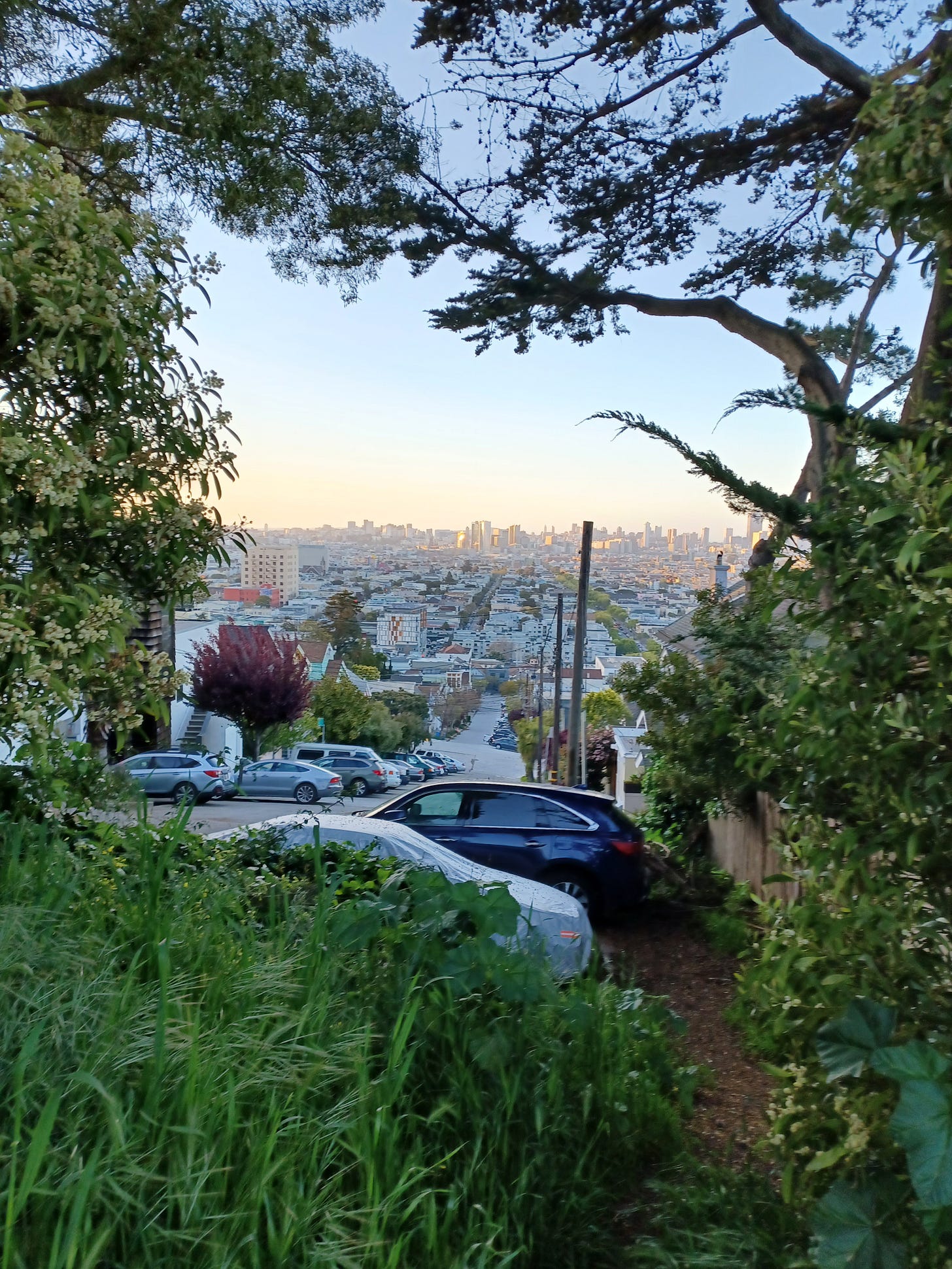
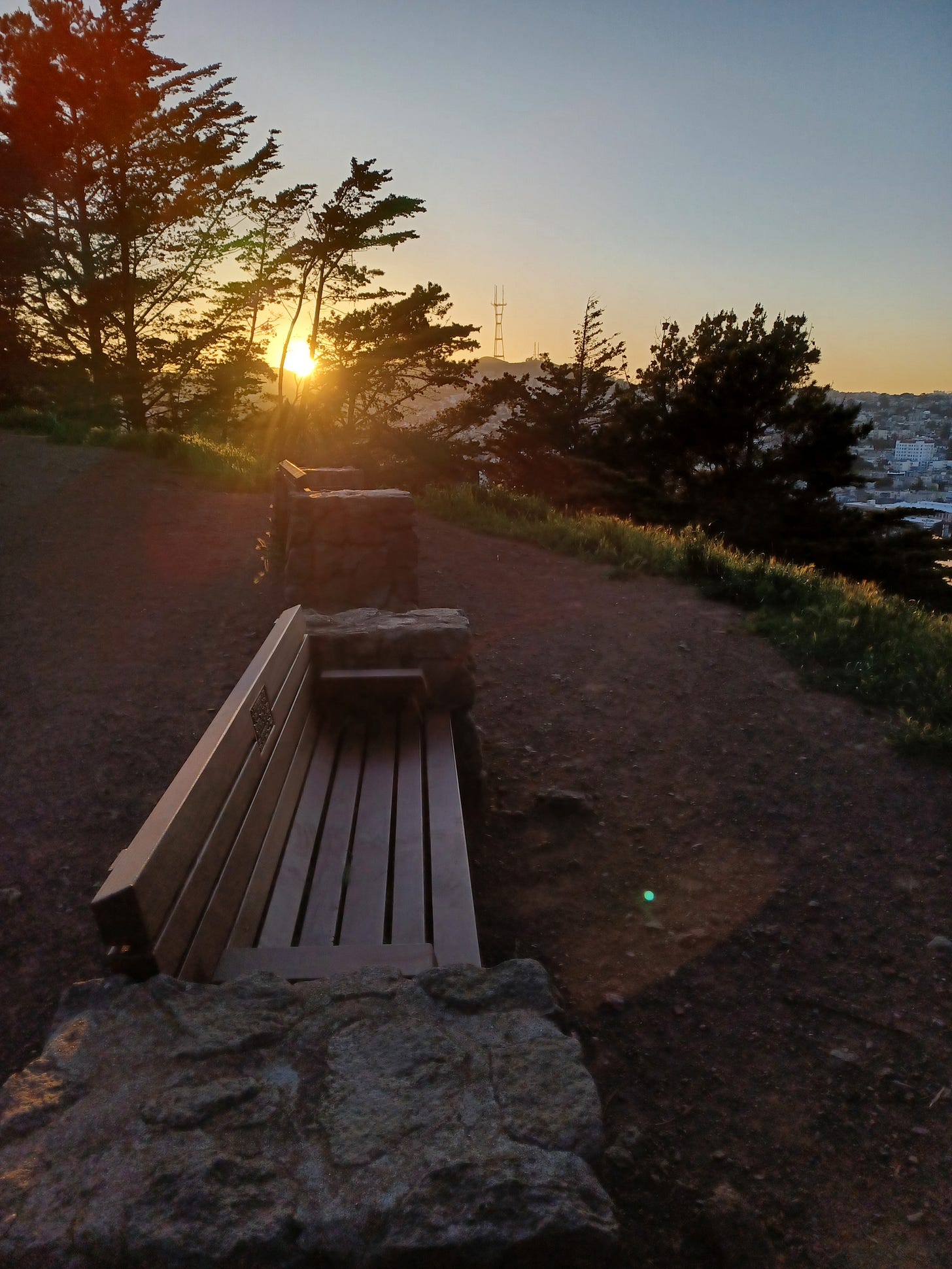
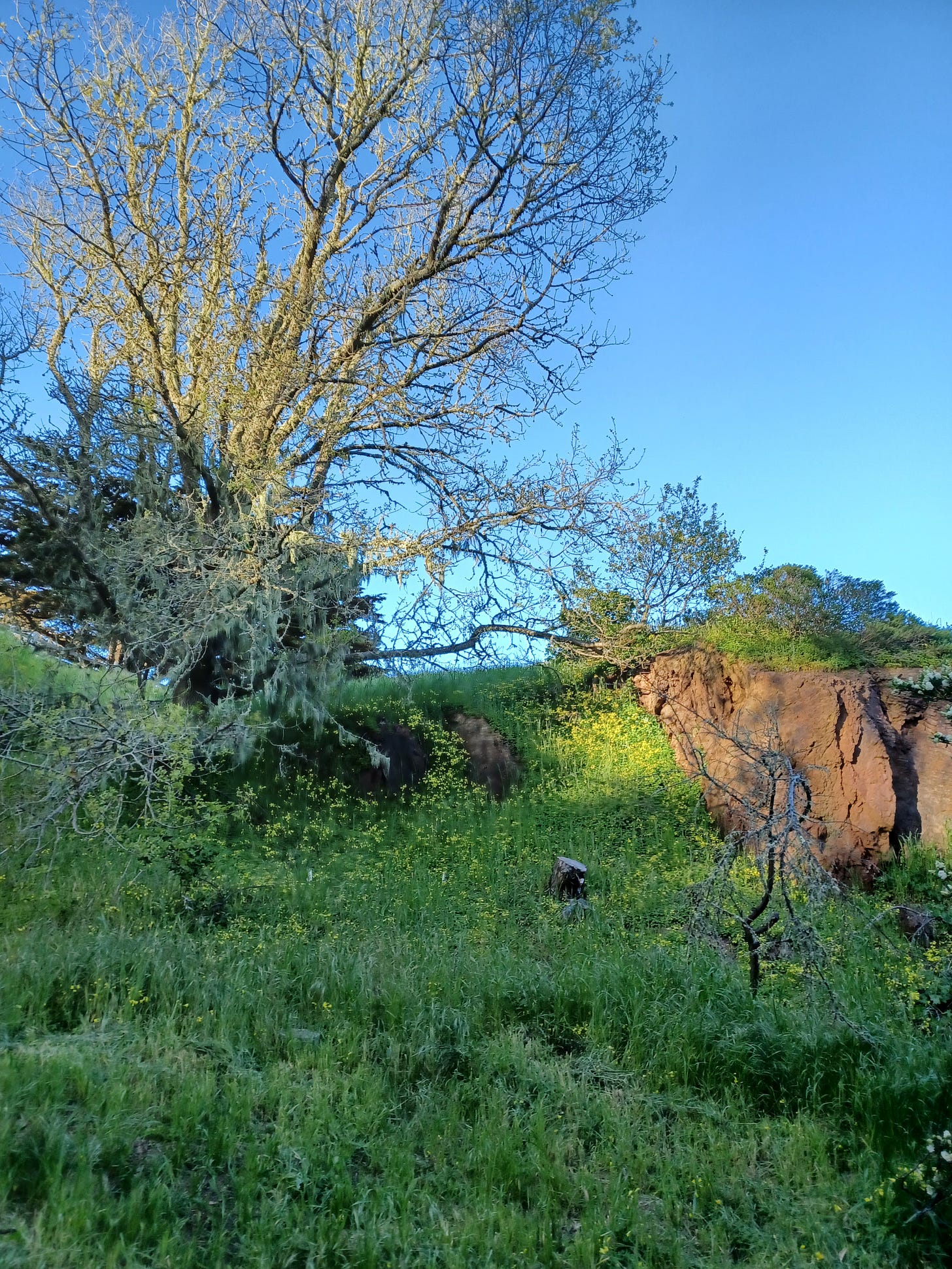
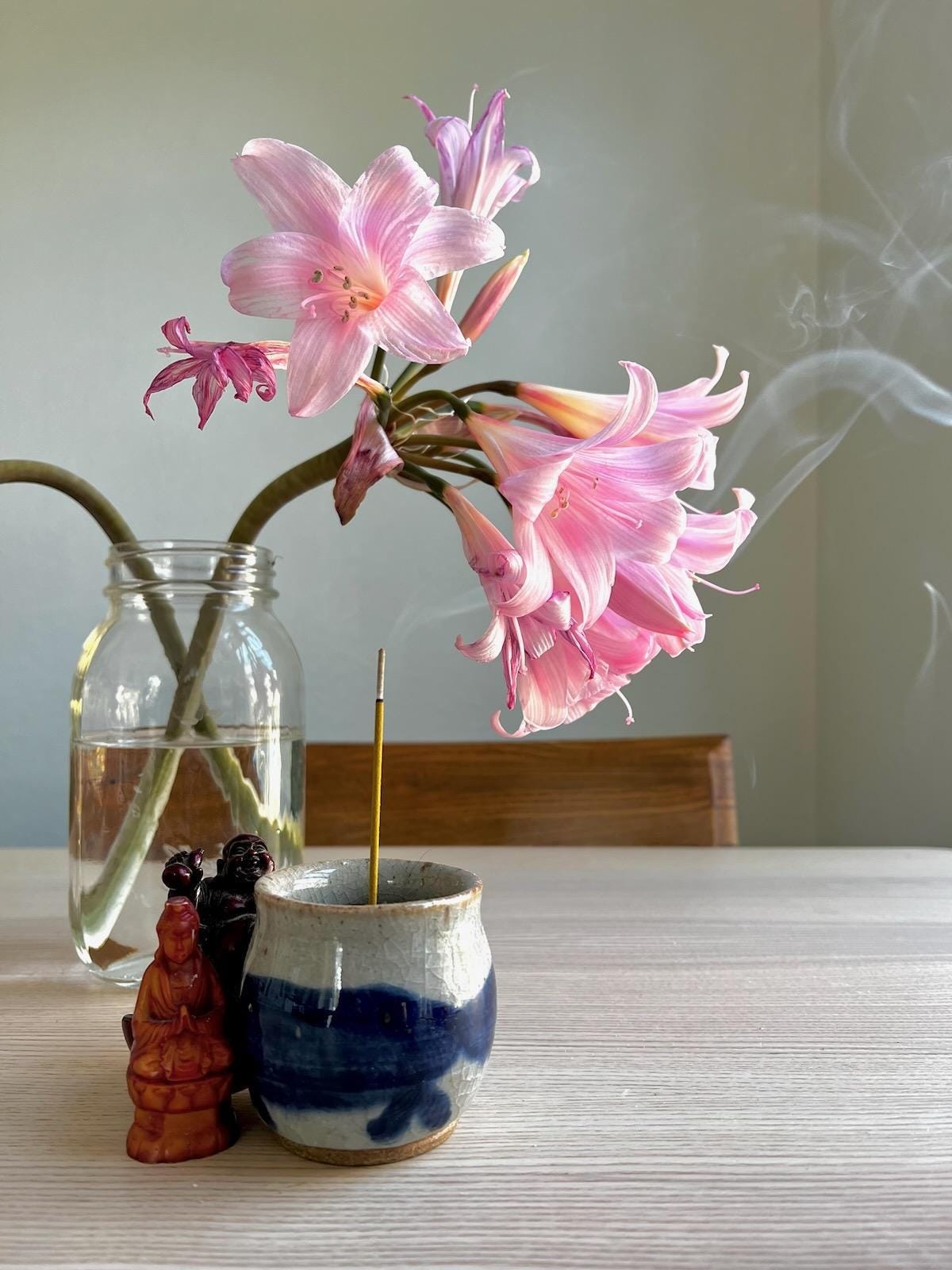
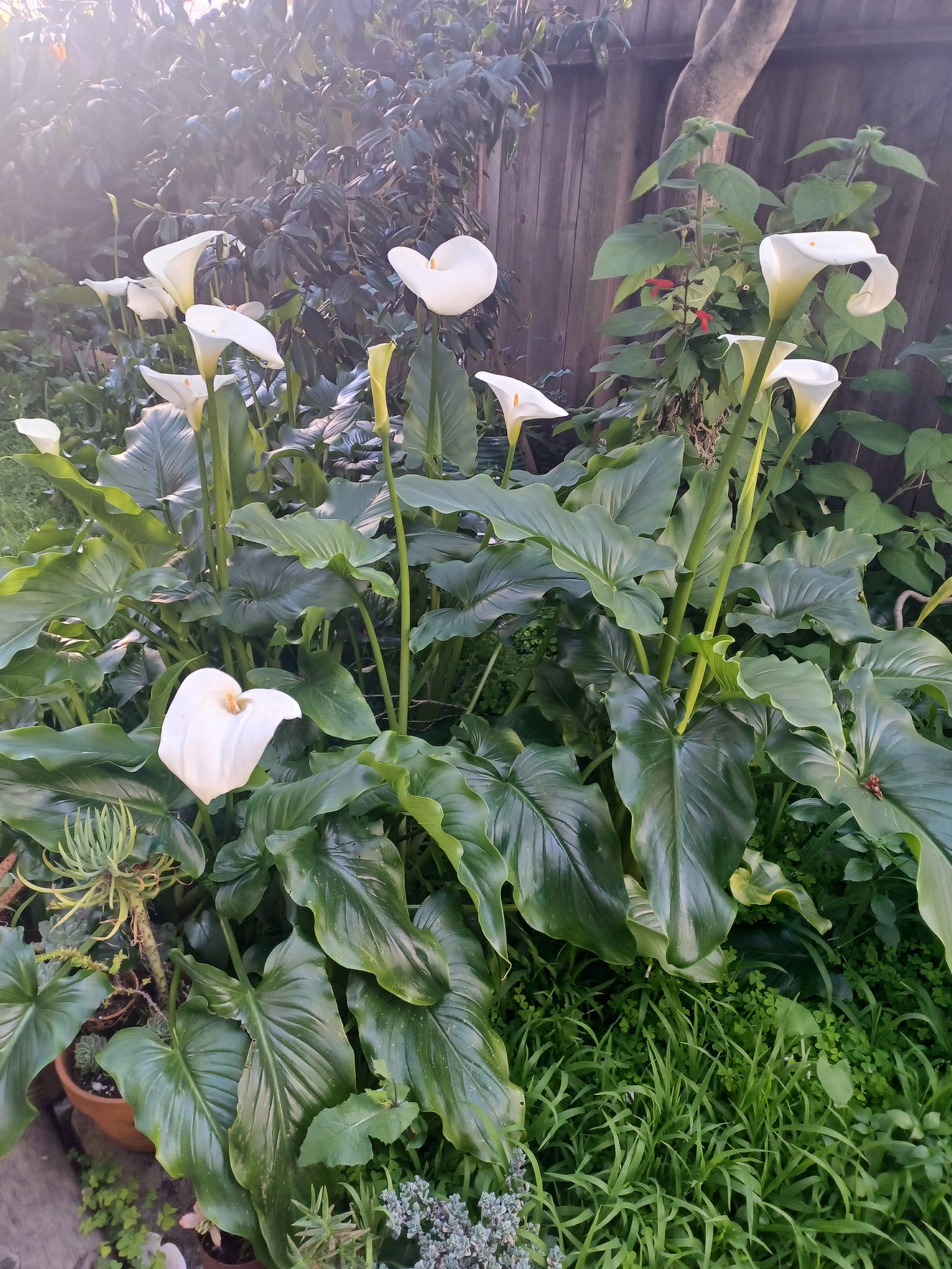
I fell in heart first to the journey of this essay Christina. Let’s share 20years of mother-gone from the earth, our lives, when next our paths cross. I sat in the garden last year, 20 years so long ago and just yesterday, stitching back time to her. Candies, singing, burning small offerings, singing sad songs, photographs tied to sticks surrounded. Into the night then all night. xx